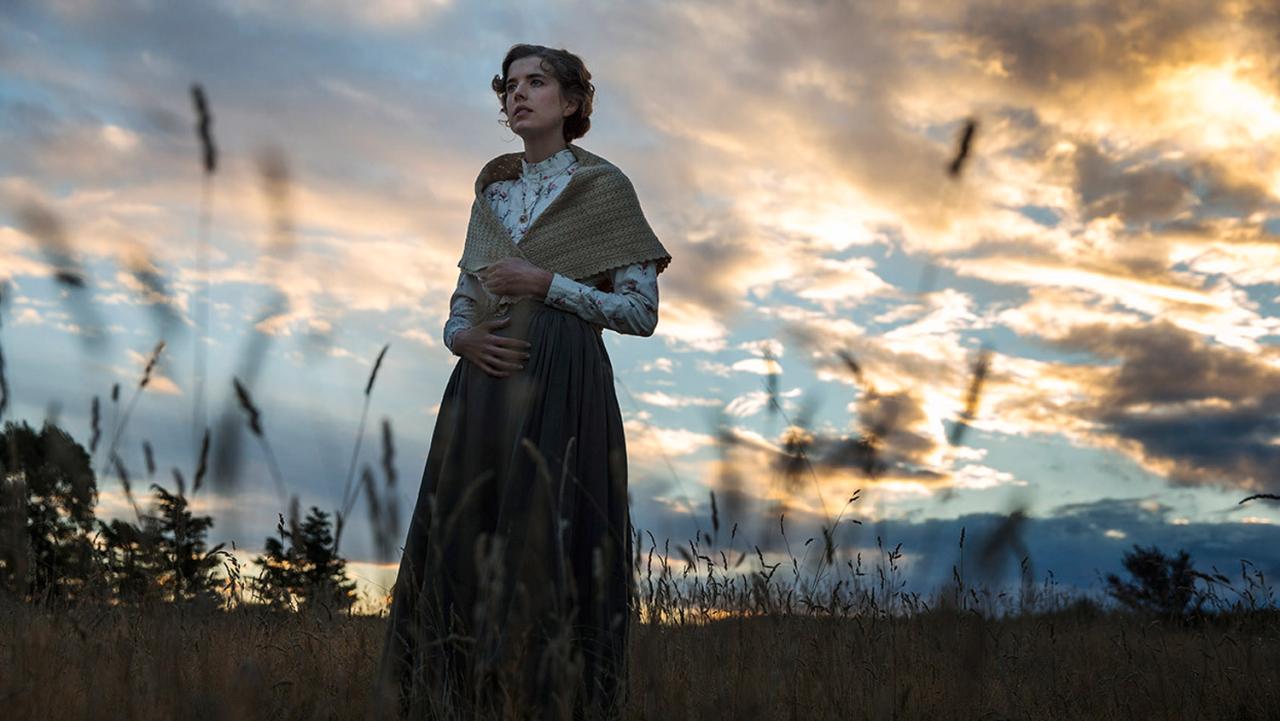“They’d the last of the light with them up there, and maybe they didn’t need it or heed it, you can do without the day if you’ve a lamp quiet-lighted and kind in your heart”.
I see a lot of films – still not as many as I’d like – but as the catalogue in my head gets added to I find that less things are able to move me. I guess it’s seeing the repeated beats and familiar tones, and just generally become more jaded and cynical that strips out some of that naive wonderment. Fittingly Sunset Song is a film about this journey through years, and scales falling from eyes as life announces itself.
Adapted from Lewis Grassic Gibbon’s classic Scottish novel of the same name, Sunset Song, was able to shimmer out from the screen and move me like little else for many months. It’s films like this that make a mockery of cries for film journalism to be more objective, and clinical in its appraisal of ‘good’ or ‘bad’. Our emotions all resonant on their own frequencies, and I for one like to hear the reviewers voice in their work. I mean, this was one of the reasons I started the Shelf Heroes zine in the first place. It’s not about films as all, but the viewers reactions to them. Some may respond to the themes of abuse, and familial responsibility raised here – but for me, it laid bare that feeling of helplessness as a passenger in your own life like few other films.
Told in fragments of moments snatched from the life of Agyness Deyn’s Chris – a young farm girl in the Scottish highlands before the advent of the first world war – Sunset Song is lyrical portrait of the rolling passage of time. Chris is slave to this relentless march that treats her joy and sorrow in equal measure. While there is a linear coming-of-age narrative dimly flickering in the candlelight, veteran director Terence Davies paints a wider vision of the slip of time.
In her early life the dark cloud of Peter Mullan looms over Chris and her family, mercilessly taking his belt to her brother and bristling with scorn for all around him. As Chris loses – and gains – loved ones her time in her isolated rural community seems to spin away from here. Skipping from the Summer’s swaying corn fields, to funerals, and weddings and rows. The good times linger as long as the bad, all rooted in Deyn’s exceptionally restrained performance (following on from an equally impressive performance in Bryn Higgins’ 2014 Electricity).
Poignancy is added by lyrical, disembodied narration from Chris – which appears to be near enough direct quotation from the source material. I usually find narration a grating annoyance, often just a cover up for poor storytelling, but here it is used as a visceral glimpse into Chris's soul. Delivered levelly by Deyn her voice floats through the landscape, unlocking a reflective mood that is beyond many other films.
In one scene shortly after her mother’s death Chris tenderly wraps her books in tissue paper, then sits back on her bed with the only illumination coming from a path of blue sky from the small window – packing away what hopes she had of education, knowing that her family must now take precedence. “The child in her heart had died then” echoes the voice over. It is not sentimental, or melodramatic it is a statement of fact and delivered as such. The same can be said for the rest of the film: the season’s and the young woman’s life turn in unison, and she must accept both. But this is ostensibly a film of hope. Despite the hardest of life’s Chris retains an incredible strength, and the kindest of hearts. We are all at the mercy of time, but ‘if you’ve a lamp quiet-lighted and kind in your heart’ there is always the prospect of change in the wind.


